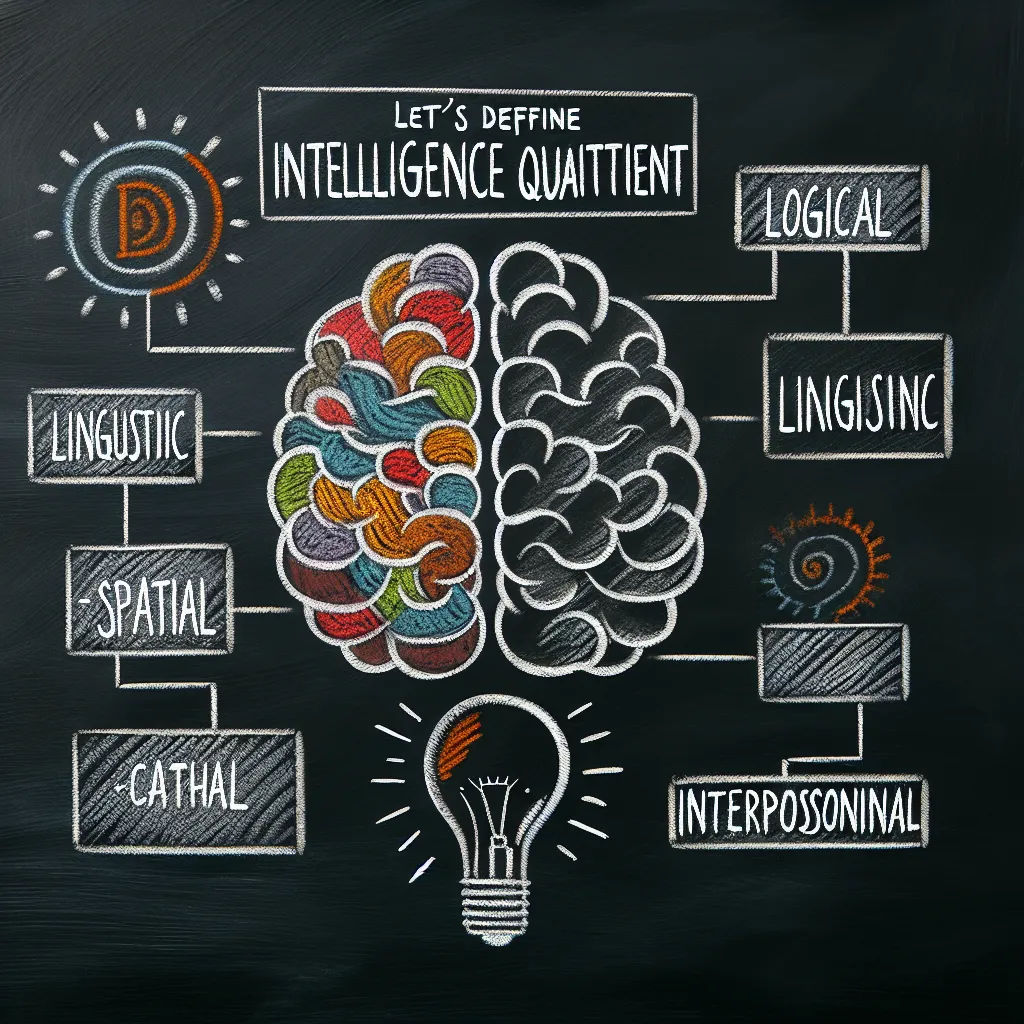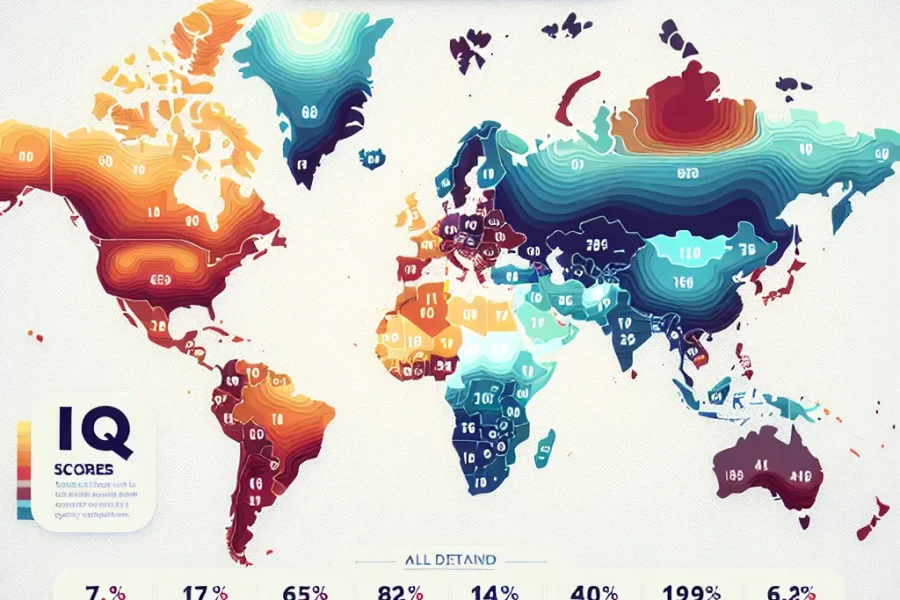Title: Let’s Define Intelligence Quotient
Understanding Intelligence Quotient (IQ) remains a cornerstone of modern psychology and educational assessment, playing an increasingly significant role in our data-driven world. As a standardized measure of cognitive abilities, IQ continues to evolve in both application and interpretation. Recent advances in cognitive science and neuroscience have expanded our understanding of human intelligence, while new testing methodologies incorporate cutting-edge research in psychological assessment. This comprehensive exploration delves into the essence of IQ, from its historical foundations to its contemporary applications and implications.
If you are looking for an excellent way to get your IQ Score, try our highly accurate IQ Test.
The Intelligence Quotient’s origins trace back to French psychologist Alfred Binet’s groundbreaking work in the early 1900s. Initially developed to identify students requiring additional educational support, Binet’s methodology introduced the revolutionary concept of mental age. His formula, which divided mental age by chronological age and multiplied by 100, laid the groundwork for modern intelligence testing. While contemporary methods have largely superseded this original approach, Binet’s fundamental principle of measuring cognitive capabilities relative to age groups remains influential in current testing paradigms.
Modern intelligence assessment has evolved into a sophisticated field, employing various well-validated instruments. The Stanford-Binet Intelligence Scales, now in their fifth edition, continue to set standards alongside the Wechsler scales (WAIS-IV and WISC-V). These contemporary tests utilize advanced psychometric principles to evaluate multiple cognitive domains, including fluid reasoning, knowledge, quantitative reasoning, visual-spatial processing, and working memory. Recent developments in testing methodology have also begun incorporating artificial intelligence and adaptive testing technologies, allowing for more precise and personalized assessment experiences.
The administration of IQ tests remains a specialized domain requiring extensive professional training. Qualified psychologists conduct these assessments under carefully controlled conditions to maintain validity and reliability. Test results follow a normal distribution curve centered at 100, with most scores falling between 70 and 130. Recent research has enhanced our understanding of score interpretation, particularly in identifying specific cognitive strengths and weaknesses that can inform educational and professional development strategies.
The significance of IQ extends well beyond academic contexts, influencing career trajectories, professional performance, and social dynamics. Contemporary research has revealed fascinating correlations between IQ scores and various life outcomes, including job complexity, innovation capability, and adaptability to technological change. However, modern psychology emphasizes that IQ represents just one dimension of human capability, with emotional intelligence (EQ), creativity, and social skills playing equally crucial roles in overall success. Recent studies in neuroplasticity also suggest that cognitive abilities remain somewhat malleable throughout life, challenging traditional fixed mindset perspectives about intelligence.
Current debates surrounding IQ have expanded to encompass artificial intelligence benchmarking, cultural competency in testing, and the role of environmental factors in cognitive development. Recent research highlights the significant impact of factors such as early childhood education, nutrition, environmental toxins, and digital media exposure on cognitive development. The emergence of AI and machine learning has also prompted new questions about how we define and measure human intelligence in an increasingly automated world.
Despite ongoing controversies, IQ testing continues to evolve as a valuable diagnostic and predictive tool. Modern applications extend beyond traditional educational settings into corporate recruitment, cognitive health screening, and personalized learning program development. Advanced research in neuroscience and cognitive psychology continues to refine our understanding of intelligence measurement, while new testing methodologies incorporate greater cultural sensitivity and reduced bias.
As we advance further into the 21st century, our understanding of Intelligence Quotient continues to expand and evolve. While IQ tests remain an important tool for assessing cognitive abilities, they represent one component in the broader spectrum of human intelligence and potential. The future of IQ testing likely lies in more comprehensive, culturally aware, and technologically advanced assessment methods that consider the full range of human cognitive capabilities. Whether you’re an educator, professional, or simply curious about human intelligence, understanding IQ provides valuable insights into cognitive function and human potential in our rapidly evolving world.




Leave a Comment